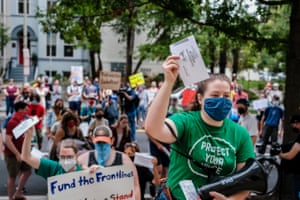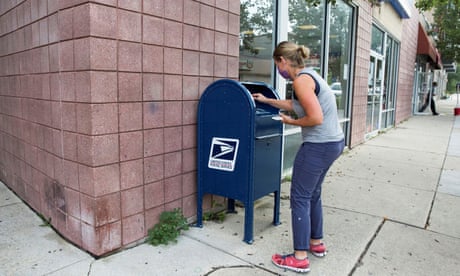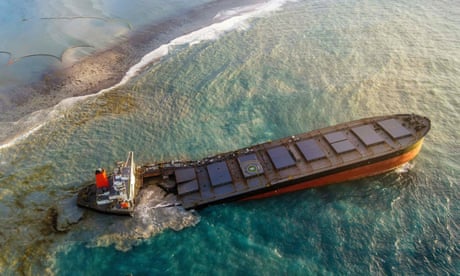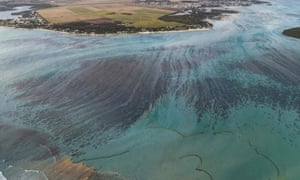Democrats move to examine cuts to the USPS as unprecedented number of Americans are expected to vote by mail because of Covid-19
Richard Luscombe
THE GUARDIAN Mon 17 Aug 2020 00.49 BST

Over the last few months, states across the US have seen record numbers of Americans request ballots and submit votes by mail in primary and other elections. Photograph: Michael A McCoy/Getty Images
Bernie Sanders has said Donald Trump’s attacks on mail-in voting and his administration’s efforts to block funds for the US post office amount to “a crisis for American democracy” ahead of the November presidential election.
The Vermont senator’s comments came as House Democrats accelerated their scrutiny of the cuts to the US Postal Service (USPS), which will be vital in the effort to minimize the risk to voters while the country still struggles to contain the coronavirus outbreak.
“What you are witnessing is a president of the United States who is doing everything he can to suppress the vote, make it harder for people to engage in mail-in balloting at a time when people will be putting their lives on the line by having to go out to a polling station and vote,” Sanders told NBC’s Meet the Press on Sunday, referring to the coronavirus pandemic.
“This is a crisis for American democracy. We have got to act and act now.”
An unprecedented number of Americans are expected to vote by mail this year because of the Covid-19 pandemic. Over the last few months, states across the US have seen record numbers of Americans request ballots and submit votes by mail in primary and other elections.
However, there is concern over whether the USPS, which is already facing a severe financial crisis, will be able get ballots to voters and return them to election offices in time to have them counted.

Why is the US Postal Service's role in November's election under scrutiny?
The postmaster general, Louis DeJoy, a major Republican donor and Trump ally, has been accused of deliberately making further recent cuts to the USPS. Congressional Democrats announced on Sunday that DeJoy and Robert Duncan, the chair of the postal service’s board of governors, have been invited to a 24 August hearing of the House oversight committee. The hearing will investigate the recent removal of mailboxes and shutting down of sorting machines nationwide.
Postal service leaders “must answer to the Congress and American people as to why they are pushing these dangerous new policies that threaten to silence the voices of millions, just months before the election,” House speaker Nancy Pelosi and other senior Democrats said in a statement Sunday. Senate minority leader Chuck Schumer of New York called for the Senate to follow suit.
DeJoy has strongly denied any political interference, and Trump said in a press briefing on Saturday that DeJoy is, in fact, trying to “make the post office great again”.
But last week, Trump openly admitted he was blocking $25bn in proposed aid to the post office because he wanted to make it harder to vote by mail. The president has also attempted to blame Democrats for fueling the crisis by holding up negotiations over a stimulus bill that includes billions of dollars for the postal service.
The announcement of the hearing coincided with efforts by White House aides and postal officials to dial back on the president’s rhetoric, claiming that the measures taken so far were “routine” and promising that no more mailboxes or sorting machines would be curtailed before November.
“There’s no sorting machines that are going offline between now and the election,” Mark Meadows, the White House chief of staff, said on CNN’s State of the Union. “That’s something that my Democrat friends are trying to stoke fear [over].
“The president of the United States is not going to interfere with anybody casting their vote in a legitimate way, whether it’s the post office or anything else.”
In a statement, USPS spokesperson Kim Frum acknowledged complaints over the removal of mailboxes in several states, but insisted it was because of an ongoing evaluation of operational practices.
“Given the recent customer concerns, the postal service will postpone removing boxes for a period of 90 days while we evaluate our customers’ concerns,” Frum said.
Neither Meadows or Frum indicated that the removed mailboxes or dismantled sorting machines would be restored.
Trump has insisted, without evidence, that voting by mail leads to massive ballot fraud, even though cases of mail-in voting fraud are, in fact, almost non-existent. Some Republicans, including the Utah senator Mitt Romney, have been critical of Trump’s position.
Both the president and first lady Melania Trump applied to vote by mail in Florida, a state that makes no distinction between absentee ballots, which Trump has said he approves of, and mail-in ballots, which he derides.
The president is trailing Democratic presidential candidate Joe Biden in the polls and his focus on the USPS is widely seen as an attempt to sow chaos. Vote-by-mail does not benefit one party over the other, but Trump’s comments suggest he believes if fewer people vote, it will improve his re-election chances.
On Sunday, Meadows said he would welcome a return from summer recess of members of Congress to work on a standalone funding bill for the USPS, something Sanders has called for, and which Pelosi has said she is mulling.
“Congress needs to come back and get their act together and work,” Meadows said, claiming that Republicans had offered $10bn for the USPS but that Democrats were holding things up. As Sanders pointed out, House Democrats passed the Heroes Act in May, providing $25bn for the postal service, but the measure laid dormant on senate majority leader Mitch McConnell’s desk.
Bernie Sanders has said Donald Trump’s attacks on mail-in voting and his administration’s efforts to block funds for the US post office amount to “a crisis for American democracy” ahead of the November presidential election.
The Vermont senator’s comments came as House Democrats accelerated their scrutiny of the cuts to the US Postal Service (USPS), which will be vital in the effort to minimize the risk to voters while the country still struggles to contain the coronavirus outbreak.
“What you are witnessing is a president of the United States who is doing everything he can to suppress the vote, make it harder for people to engage in mail-in balloting at a time when people will be putting their lives on the line by having to go out to a polling station and vote,” Sanders told NBC’s Meet the Press on Sunday, referring to the coronavirus pandemic.
“This is a crisis for American democracy. We have got to act and act now.”
An unprecedented number of Americans are expected to vote by mail this year because of the Covid-19 pandemic. Over the last few months, states across the US have seen record numbers of Americans request ballots and submit votes by mail in primary and other elections.
However, there is concern over whether the USPS, which is already facing a severe financial crisis, will be able get ballots to voters and return them to election offices in time to have them counted.

Why is the US Postal Service's role in November's election under scrutiny?
The postmaster general, Louis DeJoy, a major Republican donor and Trump ally, has been accused of deliberately making further recent cuts to the USPS. Congressional Democrats announced on Sunday that DeJoy and Robert Duncan, the chair of the postal service’s board of governors, have been invited to a 24 August hearing of the House oversight committee. The hearing will investigate the recent removal of mailboxes and shutting down of sorting machines nationwide.
Postal service leaders “must answer to the Congress and American people as to why they are pushing these dangerous new policies that threaten to silence the voices of millions, just months before the election,” House speaker Nancy Pelosi and other senior Democrats said in a statement Sunday. Senate minority leader Chuck Schumer of New York called for the Senate to follow suit.
DeJoy has strongly denied any political interference, and Trump said in a press briefing on Saturday that DeJoy is, in fact, trying to “make the post office great again”.
But last week, Trump openly admitted he was blocking $25bn in proposed aid to the post office because he wanted to make it harder to vote by mail. The president has also attempted to blame Democrats for fueling the crisis by holding up negotiations over a stimulus bill that includes billions of dollars for the postal service.
The announcement of the hearing coincided with efforts by White House aides and postal officials to dial back on the president’s rhetoric, claiming that the measures taken so far were “routine” and promising that no more mailboxes or sorting machines would be curtailed before November.
“There’s no sorting machines that are going offline between now and the election,” Mark Meadows, the White House chief of staff, said on CNN’s State of the Union. “That’s something that my Democrat friends are trying to stoke fear [over].
“The president of the United States is not going to interfere with anybody casting their vote in a legitimate way, whether it’s the post office or anything else.”
In a statement, USPS spokesperson Kim Frum acknowledged complaints over the removal of mailboxes in several states, but insisted it was because of an ongoing evaluation of operational practices.
“Given the recent customer concerns, the postal service will postpone removing boxes for a period of 90 days while we evaluate our customers’ concerns,” Frum said.
Neither Meadows or Frum indicated that the removed mailboxes or dismantled sorting machines would be restored.
Trump has insisted, without evidence, that voting by mail leads to massive ballot fraud, even though cases of mail-in voting fraud are, in fact, almost non-existent. Some Republicans, including the Utah senator Mitt Romney, have been critical of Trump’s position.
Both the president and first lady Melania Trump applied to vote by mail in Florida, a state that makes no distinction between absentee ballots, which Trump has said he approves of, and mail-in ballots, which he derides.
The president is trailing Democratic presidential candidate Joe Biden in the polls and his focus on the USPS is widely seen as an attempt to sow chaos. Vote-by-mail does not benefit one party over the other, but Trump’s comments suggest he believes if fewer people vote, it will improve his re-election chances.
On Sunday, Meadows said he would welcome a return from summer recess of members of Congress to work on a standalone funding bill for the USPS, something Sanders has called for, and which Pelosi has said she is mulling.
“Congress needs to come back and get their act together and work,” Meadows said, claiming that Republicans had offered $10bn for the USPS but that Democrats were holding things up. As Sanders pointed out, House Democrats passed the Heroes Act in May, providing $25bn for the postal service, but the measure laid dormant on senate majority leader Mitch McConnell’s desk.














 A United States Postal Service (USPS) mail carrier walks through heavy rain as Tropical Storm Fay sweeps across the heavily populated northeastern United States in Jersey City, New Jersey, U.S., July 10, 2020. © REUTERS/Mike Segar/File Photo
A United States Postal Service (USPS) mail carrier walks through heavy rain as Tropical Storm Fay sweeps across the heavily populated northeastern United States in Jersey City, New Jersey, U.S., July 10, 2020. © REUTERS/Mike Segar/File Photo